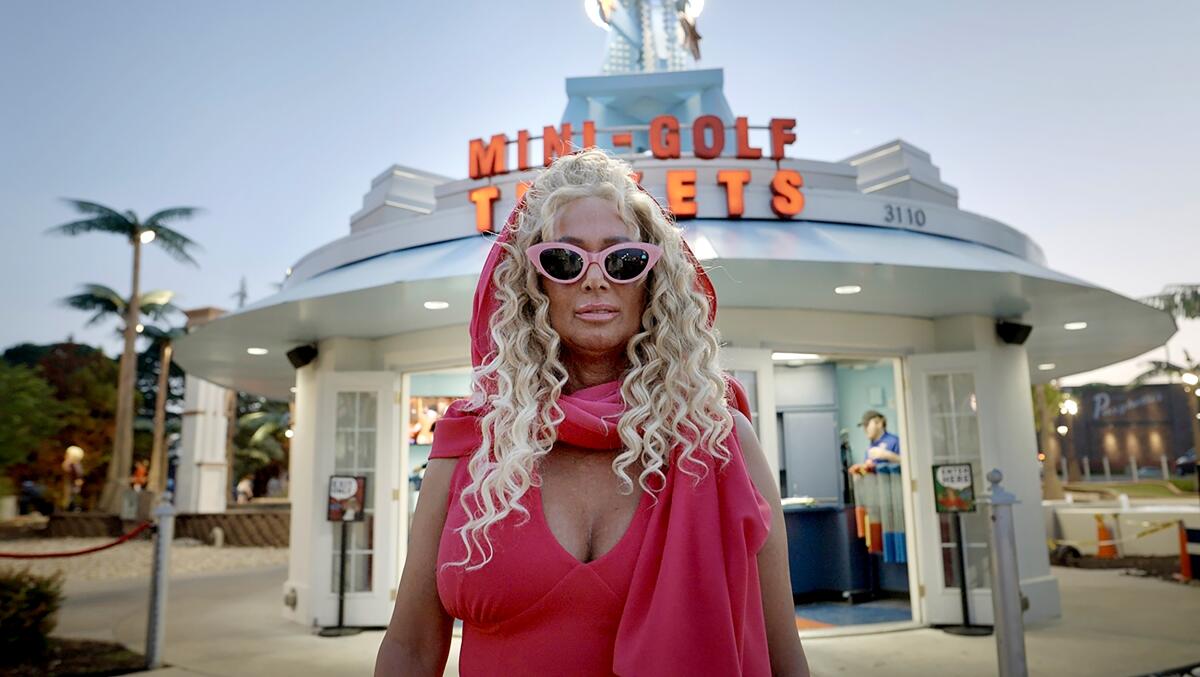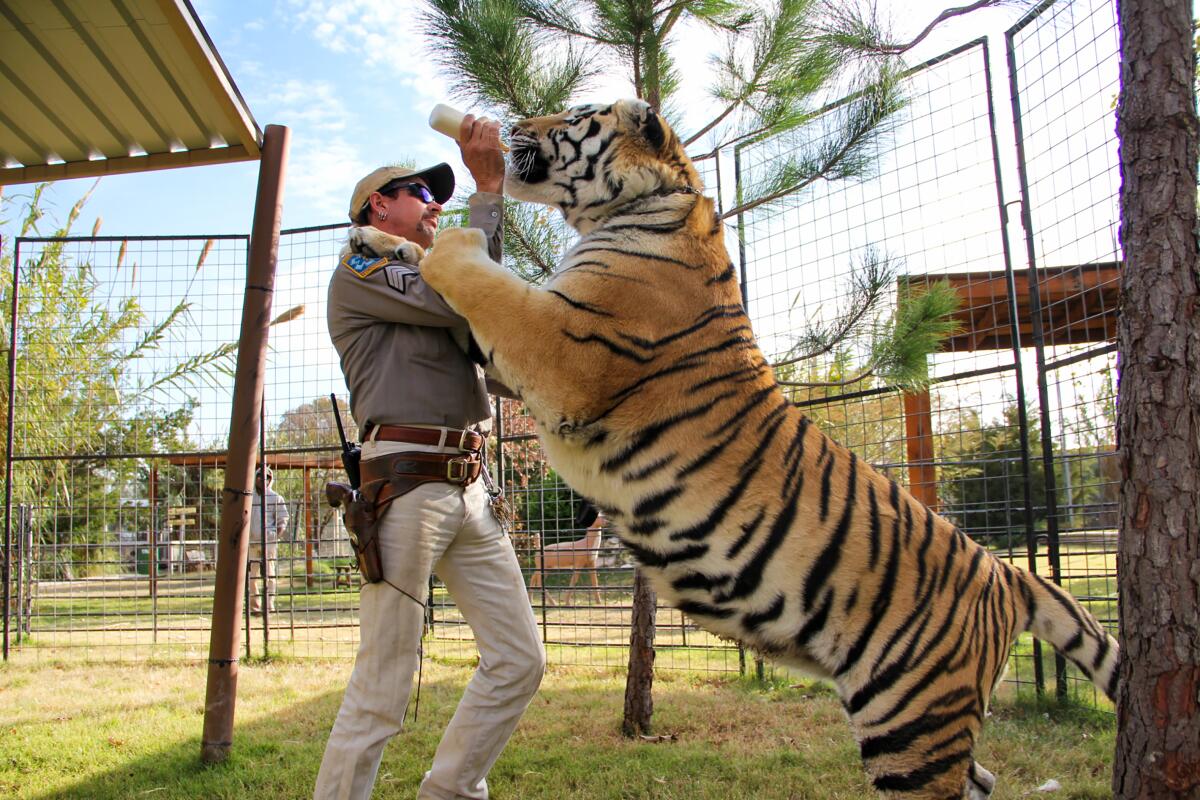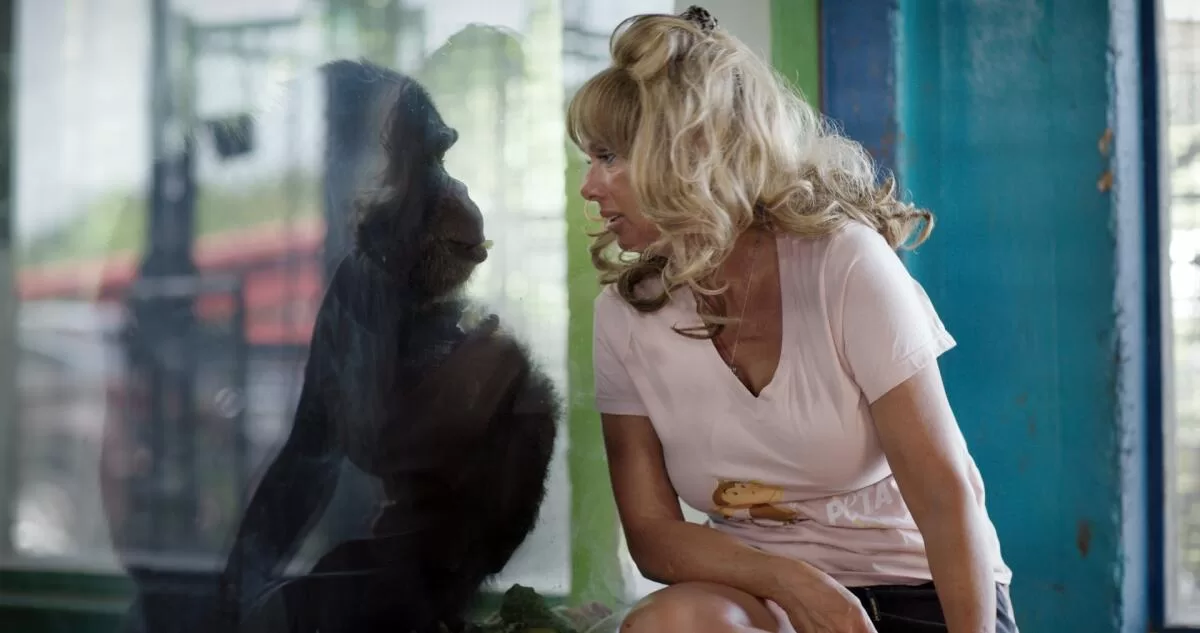The truth, the whole truth and nothing but the truth. That’s the oath Tonia Haddix swore to uphold in January 2022, when she logged into a Zoom court hearing to deny that she had anything to do with the disappearance of a famous chimpanzee.
During the proceedings, Haddix tearfully recalled how she’d found Tonka — one of seven apes whose care she’d overseen at a former chimp breeding facility in Missouri — dead the previous May. Sitting in front of her laptop at her home near the Lake of the Ozarks, Haddix became so overwhelmed with emotion during her testimony that a judge interrupted her racking sobs and ordered a 10-minute recess for her to compose herself.
Shortly after court came back in session, a verdict was announced.
“It is my belief that Ms. Haddix makes things up,” said Missouri Senior District Judge Catherine D. Perry. “But does that convince me that Tonka is alive and she has hidden him? No, it does not.”
Haddix mumbled her thanks and slammed her screen down. A huge grin spread across her face as she pumped her fists in the air.
“We won, guys. We f— won,” she said, looking around at a film crew who had been shooting the whole thing for the HBO Max docuseries “Chimp Crazy.”
“You won for now, though,” her husband noted.
“Yeah, but we gotta just keep him hidden.”

Haddix and Tonka the chimp in Max’s “Chimp Crazy.”
(HBO)
It’s one of the most astonishing moments in the series — and that’s saying something, considering the documentary, directed by “Tiger King’s” Eric Goode, features a woman describing how she breastfed her chimp. It’s when the audience realizes that Haddix, 54, in fact kidnapped Tonka just before he was about to be relocated from the Missouri facility to an ape sanctuary in Florida. As she lied in court about his supposed death, Haddix was sitting right above Tonka, who she had hidden in a basement cage.
With the third episode premiering Sunday, Haddix’s lies on that Zoom call raised the question: Will she face any legal ramifications for her actions?
After Tonka was eventually located and seized in June 2022, the judge in Haddix’s case with the animal rights group wrote to the assistant U.S. attorney to suggest a criminal investigation into Haddix and her husband, Jerry Aswegan.
The government has yet to prosecute either Haddix or Aswegan, though PETA continues to push for charges. Brittany Peet, the PETA Foundation’s general counsel for captive animal law enforcement, sent a letter to the assistant U.S. attorney about a month before “Chimp Crazy” premiered last month to detail the extent of Haddix’s lies in the series. (Peet is interviewed in the docuseries and had access to early screeners.)
In the letter, Peet said that the nonprofit was told the attorney’s office “has thus far declined to move forward with charges against Haddix because you felt you lacked sufficient evidence to prove that the chimpanzee who was removed from Haddix’s home on June 5, 2022 was actually Tonka.”
Peet proceeds to describe scenes in “Chimp Crazy” that she believes provide “incontrovertible proof” about Tonka’s identity, noting that “it is even more urgent to proceed with charges now that Haddix’s blatant and unrepentant perjury and obstruction is about to be broadcast to a national audience.”
If charged with and convicted of perjury, Haddix could face up to five years in prison, with up to an additional year in prison if charged and convicted with obstructing court orders.
Carrie Costantin, the assistant U.S. attorney to whom the complaints about Haddix were addressed, did not respond to a request for comment from The Times. Haddix, meanwhile, did not answer multiple phone calls and messages seeking an interview.

“Chimp Crazy” depicts Haddix lying about Tonka’s whereabouts during a 2022 virtual court hearing.
(HBO Max)
PETA would also like the U.S. Department of Agriculture to terminate Haddix’s Animal Welfare Act license. This license allows her to operate her Missouri zoo, Sunrise Beach Safari, where guests can hold sloths, see kangaroos and feed llamas. The permit also enables her to sell exotic animals through her business Primarily Primates, LLC. During her court case with PETA, Haddix declared that she makes approximately $80,000 per year selling creatures like caracal wildcats, Asian small-clawed otters, Egyptian fruit bats and African crested porcupines.
In September 2023, an enforcement official at the Animal Plant and Health Inspection Service — the division of the USDA that administers licenses — said in an email that the agency did not believe Haddix was fit to keep her credential after she “repeatedly provided false information and false statements to a government agency pertaining to the ownership of animals.”
The USDA did not respond to an inquiry regarding the status of Haddix’s license, which expires in September 2025.
After “Tiger King” was released on Netflix in 2020, many of its subjects had their licenses terminated by the USDA. Peet told The Times she’d complained to the organization about big cat owners like Joe Exotic and Jeff Lowe for years, but it was only after “Tiger King” that “it forced their hand because we were able to get international press on animal welfare complaints.”

Joe Exotic in “Tiger King.”
(Courtesy of Netflix)
The final punishment Haddix could face for her involvement with Tonka would come from the U.S. Fish & Wildlife Service. If the bureau determined that her treatment of the chimpanzee violated the Endangered Species Act, the U.S. Department of Justice could bring a case against her. If found guilty, Haddix could face up to a year in prison and/or a fine of up to $50,000.
The USFWS did not respond to a request for comment.
Peet said she believes there is strong evidence to suggest Haddix’s behavior breached the law protecting Tonka.
“You’re not allowed to cause an endangered species physical, psychological or veterinary injury,” the lawyer said. “In other cases, judges have found solitary confinement of a social species, failing to provide animals with appropriate enrichment, diet and enclosures — those things violated the Endangered Species Act.”
